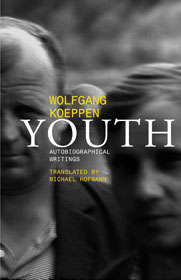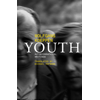This article is more than 1 year old
Pervert's Guide man's new book, an urban myths tome and Youth, an underrated gem
Some juicy reads for your weekend
Youth: Autobiographical Writings
Wolfgang Koeppen is a major 20th century novelist, most famous for his post-WWII trilogy: Pigeons on the Grass, The Hothouse and Death in Rome. As the title suggests, Youth is a book about his younger days.
It was completed in 1976 and is the last of his major works to be translated into English.
The book opens in November 1918, with Germany on the brink of defeat and our protagonist delirious in hospital with flu, watching the portraits of the leaders of the Second Reich hung on the wall dissolving. The first apparent thing is that this is no privileged life: “Just plebs everywhere you looked.”
Wolfgang Koeppen was born illegitimately in 1906 and came of age at the time of Germany’s post-war collapse. His mother was a prompter at the local theatre and her son seems inspired with a thirst for knowledge.
Youth reeks of poverty, hunger and hopelessness – even though it was written nearly half a century after the events recorded, sometimes with the benefit of hindsight, as in this description of the local courthouse: “Something for Franz Kafka of Prague to have described, whom I then didn’t know and who later coloured my memory.”

Inevitably comparisons can be drawn between Koeppen and his contemporaries such as Kafka and Alfred Döblin – whose most famous novel: Berlin Alexanderplatz – takes place in a similar milieu.
But Koeppen is younger, more impoverished and more lyrical, his work is more the literary equivalent of the art of George Grosz and Otto Dix, he is an outcast: “I didn’t look up to some people or look down on others, but saw in all forms of existence merely varieties of disguise that didn’t suit me.”
With his clothes in rags and no shoes, Koeppen lived the life of a vagrant: “I would rest where I was in the way. I lay down on the street, in people’s doorways. I stretched out on the grass verges put there to beautify the scene for the bourgeoisie.”
Like many of his generation, he is captivated by the cinema and theatre, when his mother or a friend can get him in for free. And there is always literature: “Libraries attracted me. I haunted them greedy and addicted...I was irresistible, the librarians were helpless...They opened their shelves to me...I guzzled type. I forgot myself. I sat in the public square like a drunkard. The alphabet swept me away.”
Koeppen goes to Berlin, blags a one night stand as an actor in a theatre. He eventually decides to go to sea, getting his first boat to Finland. Youth closes with him taking leave of the girl who has given him shelter.
The book also contains Once Upon A Time in Masuria, which Koeppen wrote in Munich towards the end of his life in 1991, looking back at his childhood after revisiting his birthplace, now part of Poland. It is a short, nostalgic piece about change and the past and complements Youth very nicely.
Wolfgang Koeppen is a writer of the highest calibre and it is incredible that he is not better known in the English-speaking world. A tip of the hat to translator Michael Hofmann: Youth is an excellent work and I can recommend it to anyone interested in top quality literature. ®
 Author Wolfgang Koeppen, translation by Michael Hofmann
Author Wolfgang Koeppen, translation by Michael Hofmann
Title Youth: Autobiographical Writings
Publisher Dalkey Archive Press
Price £10.95 (Paperback)
More info Publication web site
